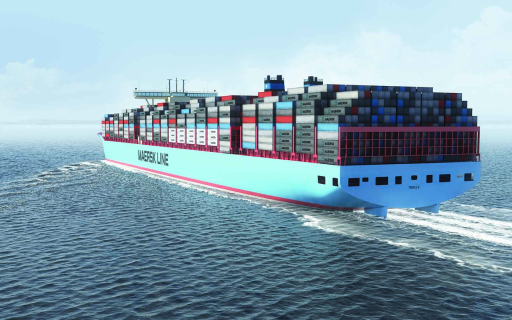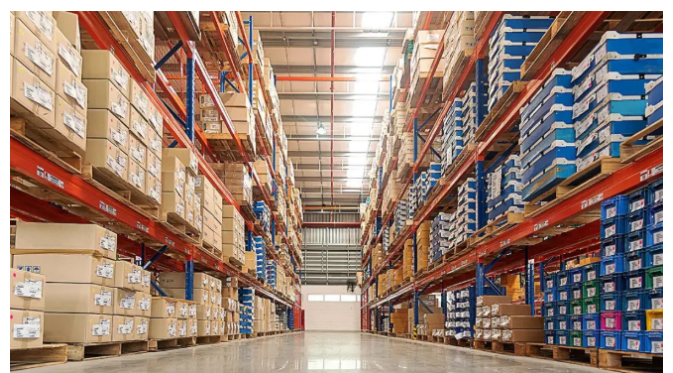Maximizing Shipping Efficiency with Expert Forwarding Services
Shipping goods internationally or domestically involves a complex web of logistics, documentation, and compliance requirements. Relying on a professional forwarder can significantly ease these challenges by offering expertise and a streamlined approach. Understanding the benefits of partnering with a professional forwarder reveals how businesses can optimize shipment processes, reduce risks, and focus on core operations.
Comprehensive Knowledge and Expertise in Logistics
Navigating Complex Shipping Regulations
Shipping goods across borders involves various customs regulations, tariffs, and compliance requirements that vary by country and product category. A professional forwarder possesses in-depth knowledge of these rules, helping to avoid costly delays and penalties.
How does expertise in regulations benefit shipments? Proper handling of customs documentation and adherence to legal standards ensure faster clearance and reduced risk of shipment detention or fines. This knowledge also enables forwarders to advise on the most efficient routes and shipping methods.
Handling Diverse Cargo Types Efficiently
Different goods require specialized handling, whether perishable, hazardous, oversized, or fragile. A professional forwarder has experience with various cargo types and can provide tailored solutions to protect shipments.
Why is specialized cargo handling important? It preserves product integrity and meets regulatory safety standards. This reduces the likelihood of damage claims and ensures compliance with international safety laws, safeguarding your reputation and bottom line.

Time and Cost Savings Through Professional Management
Optimizing Freight Costs with Strategic Planning
A professional forwarder leverages industry relationships and volume to negotiate competitive shipping rates. They also analyze shipment details to select the most cost-effective transportation modes and routes.
How does strategic planning lower costs? Avoiding unnecessary fees, surcharges, or inefficient routing cuts expenses. Additionally, forwarders can consolidate shipments or suggest alternate schedules to reduce overall logistics costs without compromising delivery times.
Streamlining Operations to Save Time
Managing shipments independently often requires significant time investment in coordination, documentation, and troubleshooting. A professional forwarder handles these tasks proactively, freeing up valuable internal resources.
What impact does this have on business operations? Companies can focus on production, sales, and customer service while the forwarder ensures timely and smooth shipment execution. This operational efficiency enhances competitiveness and customer satisfaction.
Risk Mitigation and Enhanced Security
Reducing Risks of Loss and Damage
Professional forwarders implement best practices for packaging, labeling, and securing cargo during transit. They monitor shipments closely and coordinate with carriers to minimize risks.
Why is risk mitigation critical in shipping? Lost or damaged goods lead to financial loss, customer dissatisfaction, and reputational damage. Forwarders’ expertise reduces these risks, providing peace of mind and reliable delivery.
Managing Insurance and Claims Effectively
In the event of damage or loss, professional forwarders assist with insurance procurement and claims processing. Their experience expedites resolutions and ensures fair compensation.
How does this benefit shippers? Minimizing financial impact and administrative hassle related to claims helps maintain cash flow and operational stability. It also ensures that issues are addressed swiftly and fairly.
Access to Advanced Technology and Tracking
Real-Time Shipment Visibility
Modern professional forwarders utilize digital platforms offering real-time tracking and shipment status updates. This transparency allows shippers to monitor progress and anticipate any delays.
Why is real-time visibility valuable? It improves supply chain planning and customer communication. Being informed enables proactive decision-making, which helps maintain deadlines and manage expectations.
Integration with Supply Chain Systems
Many forwarders offer integration capabilities with clients’ enterprise resource planning (ERP) and warehouse management systems. This seamless data exchange enhances operational accuracy.
What advantages arise from system integration? It reduces manual data entry errors, speeds up information flow, and enables better inventory and order management. This integration supports smoother end-to-end logistics.
Customized Solutions for Unique Business Needs
Tailoring Shipping Strategies to Business Requirements
Every business faces distinct challenges based on product type, market destinations, and volume. A professional forwarder designs customized shipping plans that align with these variables.
Why is customization important? One-size-fits-all approaches often lead to inefficiencies or extra costs. Personalized strategies maximize resource use and adapt to evolving business demands, improving overall supply chain performance.
Offering Flexible and Scalable Services
Professional forwarders can adjust services based on seasonal peaks, market expansion, or special projects. This flexibility helps businesses manage fluctuating logistics needs without disruption.
How does scalability support growth? It allows companies to respond to changing market conditions confidently, knowing their shipping partner can handle increased or varied shipment volumes smoothly.
Enhanced Compliance and Documentation Management
Ensuring Accurate and Timely Paperwork
International shipments require precise documentation such as bills of lading, commercial invoices, and certificates of origin. A professional forwarder ensures all paperwork is accurate and submitted on time.
What is the impact of correct documentation? Avoiding errors prevents shipment delays, penalties, and customs clearance issues. Timely paperwork facilitates smoother border crossings and faster delivery.
Staying Updated with Regulatory Changes
Global trade regulations evolve frequently, with new tariffs, restrictions, or safety requirements. Professional forwarders stay informed and adjust processes accordingly.
Why is staying current with regulations essential? It prevents non-compliance risks that can halt shipments or incur fines. Forwarders’ proactive approach ensures shipments meet all legal requirements without last-minute surprises.
Building Strong Partnerships and Network Reach
Access to a Global Network of Carriers and Agents
Professional forwarders maintain extensive relationships with carriers, port agents, and customs brokers worldwide. This network enables efficient handling across different regions.
How does a broad network simplify shipments? It offers access to reliable carriers, competitive rates, and expedited handling services. This connectivity is especially valuable for complex routes or emerging markets.
Providing Dedicated Customer Support
Clients benefit from personalized assistance throughout the shipping process. Professional forwarders offer guidance, problem-solving, and updates to ensure smooth operations.
What role does customer support play? Effective communication builds trust, resolves issues quickly, and enhances overall shipment satisfaction. It also helps businesses adapt to unforeseen challenges with expert advice.
Long-Term Advantages of Using a Professional Forwarder
Continuous Improvement Through Data and Feedback
Professional forwarders use shipment data and client feedback to optimize processes and suggest improvements. This iterative approach drives better outcomes over time.
Why is continuous improvement beneficial? It leads to reduced costs, improved transit times, and enhanced service quality, supporting sustained competitive advantage.
Supporting Strategic Business Goals
Beyond shipping, professional forwarders contribute insights that align logistics with broader company goals such as sustainability, market expansion, or cost leadership.
How does logistics support strategic goals? Efficient shipping enables timely product delivery, reduces environmental impact, and supports flexible growth—all essential for long-term success.
FAQ
What distinguishes a professional forwarder from a standard shipping service?
A professional forwarder provides comprehensive logistics management, expertise in regulations, cargo handling, and customized solutions beyond simple transportation.
How does a professional forwarder reduce shipping costs?
By leveraging industry networks, optimizing routes, consolidating shipments, and negotiating better rates, a professional forwarder lowers overall freight expenses.
Can a professional forwarder handle special cargo types?
Yes, they have the experience and resources to manage hazardous, perishable, oversized, and fragile goods safely and in compliance with regulations.
What technologies do professional forwarders use to enhance shipments?
They use real-time tracking platforms, data analytics, and system integrations to provide transparency, improve planning, and automate documentation.
Table of Contents
- Maximizing Shipping Efficiency with Expert Forwarding Services
- Comprehensive Knowledge and Expertise in Logistics
- Time and Cost Savings Through Professional Management
- Risk Mitigation and Enhanced Security
- Access to Advanced Technology and Tracking
- Customized Solutions for Unique Business Needs
- Enhanced Compliance and Documentation Management
- Building Strong Partnerships and Network Reach
- Long-Term Advantages of Using a Professional Forwarder
- FAQ



